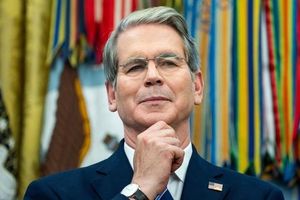The recent resignation of New York City Schools Chancellor David Banks has sent ripples through the education community, bringing to light not just the controversies surrounding his leadership but also the looming federal investigations. These developments have ignited conversations and raised questions about the future direction of the city’s schools and the impact on students, teachers, and families.
David Banks, who took on the role as chancellor roughly 18 months ago, announced his departure as he faced mounting pressure around several key issues. His tenure was marked by aggressive educational reforms aimed at improving the city's struggling public school system. While praised by some for his bold initiatives, he also faced criticism for his handling of various situations, which many considered detrimental to the schools.
One of the most pressing challenges during Banks’ time was the significant decline in student enrollment, which has raised alarms across the board. According to recent reports, the city has seen tens of thousands of students leave public schools, opting instead for private institutions or homeschooling, often driven by safety concerns and perceived lower quality of education. These trends severely undermine the funding and resources available to schools operating at reduced capacity.
Emphasizing his focus on equity and inclusion, Banks introduced several policies aimed at addressing disparities within the education system. His initiatives included reallocations of resources to support underprivileged communities and efforts to provide more comprehensive mental health services to students. Yet, critics questioned the efficacy and timing of these policies, especially against the backdrop of declining morale among teachers and parents.
Further complicatings matters, rumors of federal investigations began to surface, focusing on potential mismanagement and questionable financial practices within the Department of Education. These investigations, which have not been officially detailed, have elicited responses from various stakeholders, including union leaders who have expressed concerns about transparency and accountability.
On stepping down, Banks stated, “My time as Chancellor has been both challenging and rewarding. I am proud of the strides we’ve made, but I know the system must continue to evolve.” His departure raises several questions about who will lead the department moving forward and how the next chancellor will tackle these unresolved issues.
With the backdrop of federal inquiries looming, there is palpable tension among educators, students, and municipal officials. The city’s mayor now faces the task of appointing someone who can navigate the choppy waters of public education, especially as families are waiting for reassurances about the integrity and future of the school system.
Educators have sought clarity on how these changes will affect day-to-day operations within schools. Many expressed worries not only about leadership stability but also about the continuity of the initiatives started under Banks’ leadership. The Association of Teachers has openly called for more transparency moving forward, urging stakeholders to prioritize stability.
Parents have reacted with mixed feelings. Some are hopeful about new leadership possibly bringing fresh ideas, whereas others are anxious about the potential fallout from the investigations and what this means for their children's education. This uncertainty emphasizes the importance of clear communication from the city as they work to instill confidence among families.
Looking beyond the immediate concerns, the future of education policy reform hangs delicately. Many stakeholders have noted this could be the time for innovative approaches to be explored. Thoughts are circulating around new strategies focusing on technology integration, alternative education pathways, and community engagement to empower families.
While Banks has left behind elements of his strategic vision, this next chapter for New York City schools won’t be without its challenges. Fresh leadership will be tasked with addressing the concerns stemming from both enrollment declines and the federal investigations, all of which require delicate handling. This dynamic highlights the significant interplay between leadership decisions and community impact.
Overall, Chancellor Banks’ resignation marks a pivotal moment for New York City’s educational direction. With federal scrutiny and the need for community confidence on the rise, the next steps taken by the city’s educational leaders will be closely observed—and will determine the educational outcomes for thousands of students.



